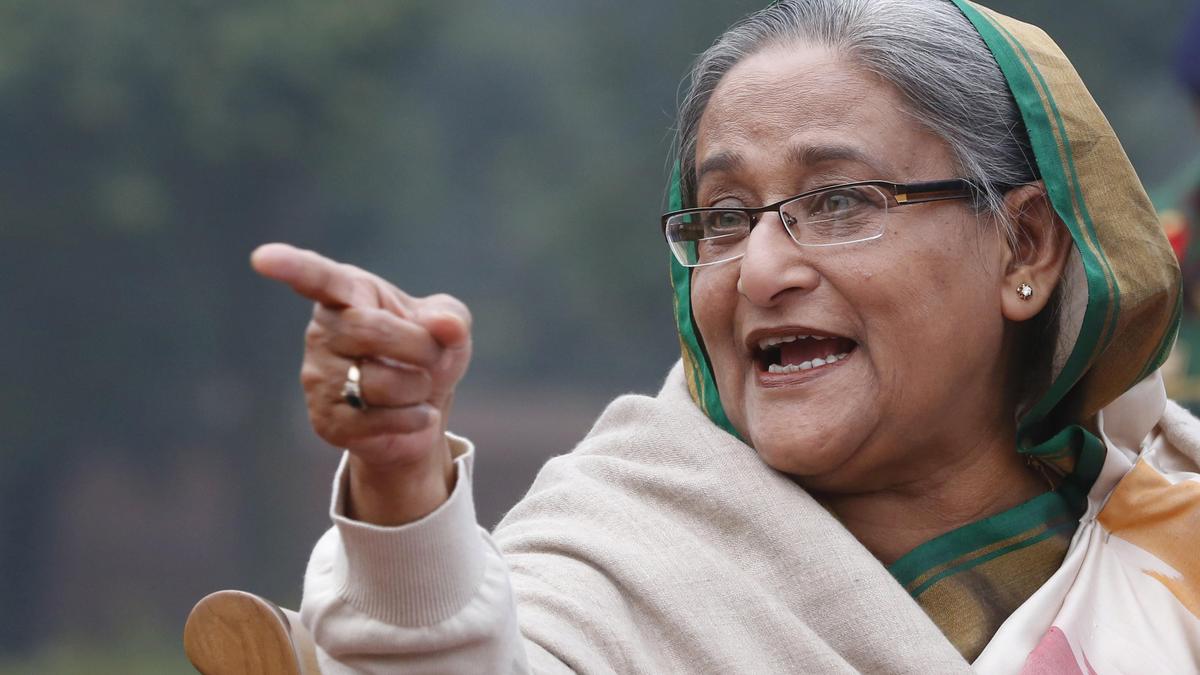
Prosecutors in Bangladesh have demanded the death penalty for former Prime Minister Sheikh Hasina, accusing her of crimes against humanity over a brutal crackdown on student-led protests that toppled her government in 2024.
Hasina — who ruled Bangladesh for 15 consecutive years before being ousted in August 2024 — is alleged to have ordered security forces to open fire on demonstrators during the mass uprising. Prosecutors cited a leaked audio recording in which Hasina purportedly instructed commanders to “use lethal weapons” against protesters — a claim she has vehemently denied.
Chief prosecutor Tajul Islam told the Dhaka Special Tribunal on Thursday that Hasina was personally responsible for the deaths of more than 1,400 people, declaring that she deserved “1,400 death sentences — one for each life lost.”
“Since that is not humanly possible,” Islam said, “we demand at least one death sentence for her deliberate, inhumane orders. Sheikh Hasina has shown no remorse. Her only goal was to cling to power permanently for herself and her family.”
The 2024 Uprising
The unrest began in July 2024 as student protests against controversial civil service job quotas that favoured descendants of veterans from Bangladesh’s 1971 War of Independence. Within weeks, the movement escalated into a nationwide revolt demanding Hasina’s resignation.
By early August, security forces were accused of using live ammunition and armoured vehicles against unarmed demonstrators. Human rights monitors described it as the bloodiest episode in Bangladesh’s modern history, with more than 1,400 killed and thousands injured.
One of the worst massacres occurred on August 5, 2024, when Hasina fled her Dhaka residence by helicopter as protesters stormed the compound. That same day, police reportedly opened fire on crowds in a central district of the capital, killing at least 52 people.
Trial in Absentia
Hasina, 77, is being tried in absentia, along with her former Interior Minister Asaduzzaman Khan Kamal and ex-police chief Chowdhury Abdullah Al-Mamun. Prosecutors are also seeking the death penalty for Kamal, who is currently in hiding.
Chowdhury, who pleaded guilty in July, admitted to following government directives during the deadly crackdown, though his sentencing has been delayed.
Hasina’s court-appointed defence counsel argued that police had acted in self-defence, claiming protesters attacked security forces and government facilities.
The former prime minister has already been sentenced to six months in prison for contempt of court in a separate case and faces additional corruption and abuse-of-power charges linked to her time in office.
Life in Exile and Political Fallout
Hasina fled to India after her government collapsed but has not been seen publicly since. New Delhi has neither confirmed nor denied her presence, though diplomatic sources say Bangladesh has pressed for her extradition.
Her once-powerful Awami League party has been banned from political activity, leaving the Bangladesh Nationalist Party (BNP) — led by her long-time rival Khaleda Zia — poised to dominate the upcoming February 2026 elections.
Analysts say the outcome of Hasina’s trial could reshape Bangladesh’s political landscape, with potential ripple effects across South Asia.
Global Reaction
Human rights groups, including Amnesty International and Human Rights Watch, have called for an independent international investigation into both the 2024 massacre and the ongoing legal proceedings, warning against a politically motivated verdict.
Once hailed for transforming Bangladesh into one of Asia’s fastest-growing economies, Hasina’s final years in power were marred by accusations of authoritarianism, election manipulation, and the suppression of dissent.
If convicted, she would become the first former leader in Bangladesh’s history to face a death sentence while in exile — a verdict that could ignite fresh political unrest and test the country’s fragile stability.



